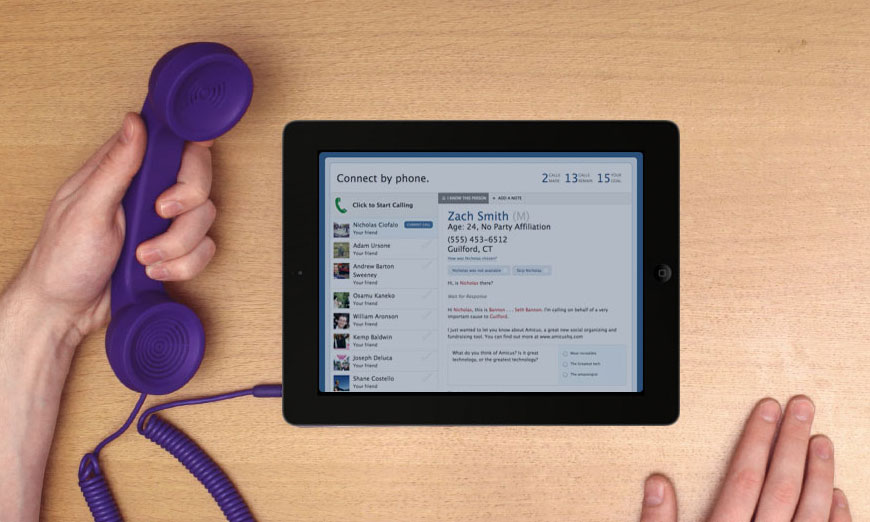
Amicus: Nonprofit Fundraising Startup Growing Fast
With a number of nonprofit groups already using the fundraising-outreach service, Y Combinator-backed startup Amicus just scored a $3.2 million funding round.
Can nonprofit fundraising get by with a little help from your friends?
That’s the idea behind Amicus, a nonprofit fundraising startup that optimizes outreach campaigns by taking advantage of Facebook social graph data to raise success rates and limit overhead. The company’s CEO and co-founder, Seth Bannon, took inspiration for the product from his own work as a volunteer.
“I thought crappy tech was holding the causes back and wasting my time and my volunteers’ time.”
“I’ve been involved with causes since I was 14 and I’ve always been super frustrated,” Bannon told TechCrunch. “I thought crappy tech was holding the causes back and wasting my time and my volunteers’ time. So a few colleagues challenged me to fix it and here we are.”
The concept is already showing signs of success, with the company, initially backed by the the startup accelerator Y Combinator, recently announcing a $3.2 million funding round.
And it has already scored some big names on the fundraising front, including the AFL-CIO, the Human Rights Campaign, and the National Education Association.
Here’s how Amicus does it:
Social graph reliance: Instead of giving volunteers a list of random people to call, Amicus takes advantage of the volunteers’ social media contacts (“we’re friends on Facebook”) or demographic details (“we went to the same high school”), cross-checks them with the group’s official list of people whom the groups are attempting to reach, and uses the personal interactions as a way to more effectively reach their audience.
A personal touch: While other companies in similar markets, such as Causes, use Facebook and other social media outlets to interact with end users, Amicus mixes it up — utilizing VOIP-based phone calls and personalized postcards to facilitate the interactions.
Making it a game: As VentureBeat points out, the gamification element — complete with points, a leader board, and a potential to win prizes — helps give volunteers incentive to continue helping.
As big data continues to become a big deal, we’re going to see more approaches like this. How could your association — whether a charitable nonprofit or one focused on business interests — take advantage of these kinds of tactics?
(Amicus press photo)






Comments